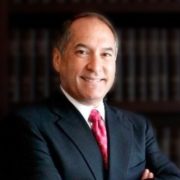Recently, a woman consulted with me about her brother’s immigration situation. Years ago, their father petitioned both of them while their father was still an immigrant. The father later naturalized, resulting in their petitions being “automatically converted” from single adult child of immigrant (F –2B) to single adult child of US citizen (F – 1).
Several years later, the woman received forms and documents from the National Visa Center (NVC) on her case, asking if she wanted to “opt out” of the automatic conversion and be processed based on the original F – 2B priority date.
(By way of background, for Filipinos, it is faster for an adult single child to be petitioned by an immigrant parent, than a US citizen parent. Many Filipino parents became US citizens, not realizing their naturalization would cause their children to wait many additional years. In 2002, Congress passed the Child Status Protection Act (CSPA), which included a provision allowing the child to “opt out” of the automatic conversion to F-1, and remain in the faster F – 2B category, even though the petitioner naturalized).
The woman signed the election to opt-out and the other forms and paperwork to enable her to be processed for her immigrant visa based on the faster F – 2B priority date and immigrated to the US. Her brother did not receive an opt out for his case, and patiently waited for his priority date in the F – 1 category, to become current. While waiting, the petitioner died, resulting in the petition being considered automatically “revoked.”
During the consultation, I asked the woman why her brother did not follow her example and opt out at the same time as her, and immigrate before the petitioner died. She replied they were “waiting” for the NVC to send the paperwork to the brother to enable him to opt out. When that paperwork did not arrive, they kept waiting, until eventually the petitioner died.
I asked her why didn’t the family just simply submit the opt out for the brother on their own, and she replied she thought they had to receive the paperwork from the government before they could avail of that benefit.
I’ve seen circumstances such as this in many situations, where a person may be entitled to a visa or other immigration benefit, but think he or she must wait for the government to send a notice or remind them. For example, many times a person’s priority date may be “current” (or the visa is available), but they have not received forms or applications from the NVC. So, they sit back and wait. Why?
If your priority date is current, and you have not received notification, then you should be taking an active or proactive approach, and pursue your visa. (It could have been that the family moved while waiting for the priority date, and the NVC sent the paperwork to the old address, giving the family one year to respond or reply. The family never receives that mail, the one year passes, and the case gets canceled.)
If a person knows his priority date is current, and just keeps waiting and waiting to be “reminded” by the NVC, the case could possibly be canceled, or as in the above situation, a petitioner passes away, even though the visa had been available for many years.
If you are under petition, or seeking an immigration benefit, and are not sure of your eligibility, entitlement, deadlines, or the status of your case, don’t just sit by your mailbox, waiting for the government to notify or remind you. Seek the advice of an attorney, who could evaluate your situation, so things do not fall through the cracks, that you fully exercise your rights, and obtain the benefits to which you are entitled.
* * *
Michael J. Gurfinkel is licensed, and an active member of the State Bar of California and New York. All immigration services are provided by, or under the supervision of, an active member of the State Bar of California. Each case is different. The information contained herein including testimonials, “Success Stories,” endorsements and re-enactments) is of a general nature, and is not intended to apply to any particular case, and does not constitute a prediction, warranty, guarantee or legal advice regarding the outcome of your legal matter. No attorney-client relationship is, or shall be, established with any reader.
WEBSITE: www.gurfinkel.com
Call Toll free to schedule a consultation for anywhere in the US:
(866)—GURFINKEL
Four offices to serve you: LOS ANGELES · SAN FRANCISCO · NEW YORK · PHILIPPINES






